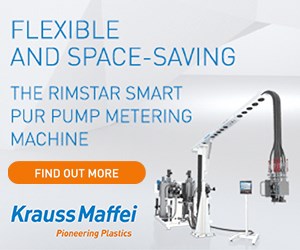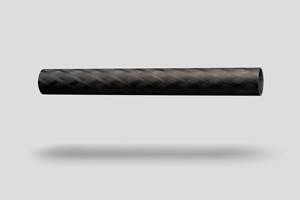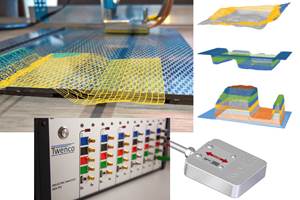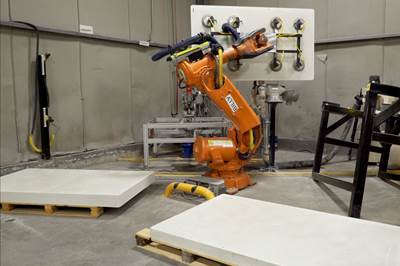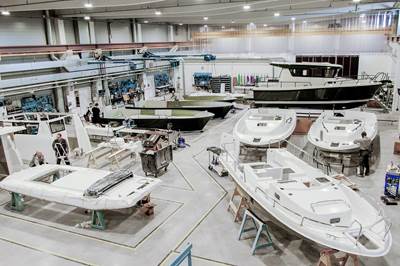Industrial equipment manufacturer expands global footprint, reaches into new markets
India-based CW Top Shops honoree EPP Composites reflects on a recently successful vertical filament winding application and new pultruded FRP rebar capabilities, as well as future opportunities.
In 2023, CW Top Shop honoree EPP Composites developed a specialized vertical filament winder to build 12-meter-diameter, 16-meter-tall gas scrubbing columns. Source, all images | EPP Composites
Operating seven manufacturing facilities, 900,000 square feet of manufacturing space and more than 800 employees, EPP Composites Pvt. Ltd. (Rajkot, India) produces more than 60 products for industrial and utility infrastructure including pipes, industrial tanks, gratings, pultruded profiles and sheet molding compound (SMC) products.
The company was founded in 1986 by Siddharth Shah, current chairman and mechanical engineer and rubber plastic technologist by training, and Jayraj Shah, managing director. The original goal was to establish a company within the rapidly growing composites industry, with a focus on high-quality products and customer service.
EPP Composites operates seven total manufacturing facilities. In the pictured facility, pipes and underground petroleum storage tanks are manufactured via continuous filament winding (CFW).
Since then, the company “has been guided by a vision that encompasses global leadership, technological excellence, industry diversification and a steadfast commitment to creating tangible value for our customers. This vision has been instrumental in shaping EPP’s identity as a dynamic and forward-looking player in the composites industry,” explains Devvrat Shah, director.
EPP Composites is a two-time honoree for CW Top Shops, in 2021 and most recently in 2023.
Beyond the data, what makes these Top Shop facilities stand out? The CW team asked each of the latest honorees to share more about their companies’ histories, goals and trends in the composites industry.
The following Q&A features responses from Devvrat Shah:
CW: What composite materials and processes do you work with?
Shah: We process glass and other fiber-reinforced polymer (FRP) products, including glass fiber-reinforced epoxy and glass-filled thermoplastic products.
The processes that we have adopted at EPP include:
- Continuous filament winding (CFW)
- Helical filament winding
- Vertical filament winding
- Pultrusion
- Molded grating manufacturing process
- Hot compression molding using SMC
- Hand layup
- Spray-up
- Vacuum-assisted resin transfer molding
- Hoop-chop winding
- Injection molding
CW: What end markets do you serve?
Shah: We serve a variety of industries, primarily sectors involved in: oil and gas, refineries, chemical and petrochemical production, fertilizer, water infrastructure, water and wastewater treatment, power plants, renewable energy, building and construction, cooling towers, mass transportation, smart cities and mining.
CW: Reflecting back on 2023, what was your company’s top achievement or strength?
Shah: In 2023, EPP Composites achieved a significant milestone by securing a multimillion-dollar contract for one of the world’s largest copper smelter projects. The project involved the manufacturing of large-diameter (12-meter) and up to 16-meter-tall gas scrubbing columns and tanks/vessels. EPP Composites not only executed the project in a record time frame, but also adhered to stringent test protocols, showcasing our reliability and performance. Our commitment to using 100% internal resources and ensuring long-term reliability through a rigorous selection process positioned EPP Composites as a frontrunner in the industry.
To meet the unique challenges of this project, EPP Composites demonstrated our innovative prowess by developing a highly sophisticated vertical winding process (see video below). This breakthrough technology enabled the manufacturing of equipment with high precision and superior properties, overcoming the limitations posed by the size of the columns and the constraints of available transport methods. The mechanical properties of the laminate produced through the vertical winding process were on par with those manufactured in horizontal production facilities.
We also established a new design office in Chennai in southern India. This office boasts advanced capabilities, enabling complex static and dynamic simulations, surge and stress analysis and finite element analysis (FEA).
Moreover, we diversified our operations by introducing a rebar manufacturing facility at our pultrusion plant. This expansion not only showcased our commitment to innovation but also positioned us to meet the evolving needs of the market.
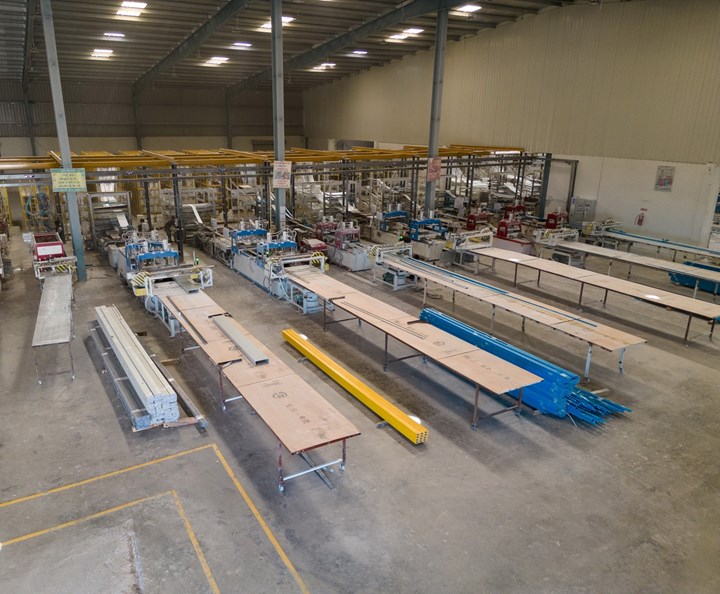
EPP Composites’ facilities run a variety of manufacturing processes, including pultrusion (pictured).
CW: What goals does EPP Composites have going into 2024, or what opportunities do you see ahead?
Shah: As EPP Composites charts its course for 2024, our strategic goals are designed to position us at the forefront of innovation and excellence in the dynamic composite materials industry.
Key objectives include:
Innovative product development. In 2024, we aspire to unveil a series of products that exceed the evolving demands of our clients. Our focus will be on creating lightweight, durable, sustainable solutions that redefine industry standards, and will include diversification of our products to more applications.
Global market expansion. Recognizing the immense potential in emerging markets and industries, we are keen on expanding our global footprint. Collaborating with strategic partners, we aim to penetrate new markets and fortify our presence in existing ones. This includes a targeted approach toward sectors such as power, chemical, oil and gas, renewable energy and advanced infrastructure projects.
Sustainability leadership. Building on our commitment to sustainability, EPP Composites is set to intensify efforts in creating eco-friendly materials and processes. By investing in research and development, we aim to deliver composite solutions that not only meet stringent environmental standards but also contribute positively to our planet’s well-being.
Digital integration for efficiency. In line with Industry 4.0 principles, we are directing resources toward digital integration within our operations. This involves leveraging advanced technologies, data analytics and automation to enhance efficiency in manufacturing processes. The goal is to provide our clients with quicker turnaround times, increased customization options and overall improved service. EPP has already implemented SAP S4 HANA for the past 4 years.
Strategic collaborations. EPP Composites recognizes the power of collaboration in driving innovation. In 2024, we will actively seek and nurture strategic partnerships with research institutions, industry leaders and complementary businesses.
Multilocational plant facilities and sales offices. EPP Composites plans for multilocational plants and global sales offices that represent our strategic leap toward global leadership. By aligning our operations with regional demands and establishing strong customer connections worldwide, we are poised to elevate our industry impact and shape the future of composite materials on a truly global scale.
CW: In 2023, EPP Composites named fiber-reinforced polymer (FRP) rebar among your innovations. Can you expand on your innovation in this field?
Shah: In the scope of developments in 2023, EPP has notably focused on innovating FRP rebar, representing a significant addition to our product portfolio. This pioneering product is currently being manufactured through an indigenously developed modified pultrusion process, showcasing our commitment to advanced and efficient production methods.
The introduction of GFRP rebar marks a paradigm shift from conventional steel rebar, offering a multitude of advantages, such as corrosion resistance, bonding strength, cost-effectiveness, fire-retardant properties, a tensile strength of 1,000 megapascals (MPa) which is 2-3 times the strength of steel, 20 times higher fatigue strength under cyclic loading conditions, a quarter of the weight of steel (2,100 kilograms per square meter versus 7,800), electromagnetic and thermal nonconductive properties, easy detectability by ground-penetrating radar (GPR), and reduced concrete cracking. Concrete cured with GFRP is also able to use seawater instead of purified water during construction, an economic advantage.
In essence, EPP’s foray into FRP rebar production signifies our dedication to innovation, sustainability and providing our clients with cutting-edge solutions that redefine industry standards.
CW: How does sustainability factor into your operations?
Shah: Sustainability is an integral part of our ethos and operations. We recognize the paramount importance of responsible and eco-conscious practices in today’s business landscape and our commitment to sustainability extends across both our manufacturing processes and the design of our composite products.
In terms of our manufacturing processes:
- To minimize energy consumption, we use energy-efficient machinery, optimized production schedules and integrate renewable energy sources wherever feasible.
- Waste reduction is a key focus. We actively promote recycling within our facilities, ensuring that scrap materials generated during the manufacturing process are systematically collected and recycled.
- We constantly evaluate and optimize our resource use, aiming to minimize raw material consumption and reduce waste. This involves rigorous monitoring of material inputs, efficient inventory management and the adoption of lean manufacturing principles.
In terms of our composite products:
- In product development, we actively explore and incorporate bio-based materials into our composites, reducing dependence on non-renewable resources. Currently, we are exploring the potential use of bio-based polymeric resin systems and the development of natural fiber composites.
- We design our composite products with end-of-life (EOL) considerations in mind. This involves engineering products that are easily recyclable and promoting initiatives for the responsible disposal and recycling of our materials at the end of their lifecycle.
- We conduct comprehensive lifecycle assessments (LCA) for our composite products, evaluating environmental impacts from raw material extraction to EOL scenarios. This helps us identify areas for improvement and make informed decisions to enhance overall sustainability.
At EPP, we view sustainability not just as a selling point but as a responsibility. By continuously integrating sustainable practices into our operations and product development, we aim to set a high standard for the industry and contribute positively to environmental stewardship.
CW: Does your facility employ automation, or plan to do so? If so, what processes are or will be automated, or what opportunities do you see in this area?
Shah: Currently, our facility has strategically incorporated automation in various aspects of our manufacturing operations, aligning with the high standards set by the composite materials industry. Notably, our CFW technology, pultrusion processes, SMC manufacturing and hot compression molding are integrated with automation, ensuring precision and consistency in the production of our FRP composites.
In addition to these advanced processes, we have selectively automated specific aspects of our assembly and fabrication lines to optimize efficiency without compromising the artisanal craftsmanship that is inherent to our industry.
As we look to the future, we are committed to exploring further opportunities for automation within our facility. This includes evaluating advancements in robotic technologies, smart manufacturing and data-driven automation to enhance the overall agility and responsiveness of our production processes. We envision automating aspects such as material handling, quality control and repetitive tasks, allowing our skilled workforce to focus on higher value activities that demand creativity and expertise.
Our goal is to strike a harmonious balance between automation and craftsmanship, ensuring that each complements the other to elevate the quality and efficiency of our FRP composites manufacturing.
EPP Composites employs continuous, horizontal and vertical filament winders to manufacture pipes, tanks and other products in a wide range of sizes.
CW: How does your company employ Industry 4.0/data within your operations?
Shah: Embracing Industry 4.0 principles and harnessing the power of data is integral to our commitment to innovation and operational excellence at EPP Composites. In our operations, we have strategically planned to integrate Industry 4.0 technologies and data-driven approaches to enhance efficiency, precision and responsiveness across various facets of our business.
Smart manufacturing and automation. Our manufacturing processes leverage advanced automation technologies, optimizing production through real-time data monitoring and control. Smart manufacturing solutions are deployed to streamline workflows, minimize downtime and ensure the seamless integration of our composites manufacturing technologies, such as our CFW and pultrusion processes.
Data analytics for process optimization. We employ sophisticated data analytics tools to gain actionable insights into our manufacturing processes. By collecting and analyzing data at every stage, from raw material procurement to final product quality control, we can identify patterns, optimize production parameters and proactively address potential issues, thereby enhancing overall process efficiency. EPP has integrated SAP S4 HANA system and uses all the modules for various departments for data management and high-level analysis.
Supply chain visibility. Industry 4.0 has enabled us to achieve greater visibility and transparency within our supply chain. Through data-driven supply chain management, we can optimize inventory levels, improve demand forecasting and enhance collaboration with our suppliers, ensuring a seamless flow of materials to meet production demands.
Digital twin technology. The implementation of digital twin technology allows us to create virtual replicas of our physical processes and products. This facilitates simulation, testing and optimization in a virtual environment, enabling us to fine-tune our processes before implementation, leading to enhanced product quality and reduced time to market. Our Chennai design office is equipped with software that allows us to conduct such simulations such as FMEA.
Cybersecurity. Recognizing the importance of data security in Industry 4.0, we have robust cybersecurity measures in place to safeguard sensitive information and maintain the integrity of our digital infrastructure. This ensures that our data-driven operations are resilient and secure against potential cyber threats.
CW: How has your company overcome any labor shortages in the market in your region? Or, what is your approach to workforce development?
Shah: At EPP Composites, we recognize the significance of the labor shortage challenges prevalent in various markets, and we’ve proactively implemented strategic measures to address these issues and foster a resilient and skilled workforce.
For example, we have intensified our commitment to training and skill development programs. By providing comprehensive training initiatives, we empower our existing workforce with the skills needed for various roles within our facility. This not only enhances the capabilities of our team but also promotes internal career growth. We conduct this through our Center of Excellence (CEC) which focuses on 4P’s: Product, Process, People and Plant development and optimization.
We have also forged partnerships with educational institutions to tap into emerging talent pools. Collaborative programs, internships and apprenticeships provide students with hands-on experience in our industry, creating a pipeline of skilled professionals and fostering a strong connection between academia and industry.
In response to labor shortages, we have also strategically embraced technology and automation in our manufacturing processes. This not only helps us optimize efficiency but also reduces the dependency on a large workforce for repetitive tasks. It allows our skilled personnel to focus on higher value activities that demand creativity and expertise.
We’ve also refined our talent recruitment strategies to attract skilled individuals in a competitive market. This includes leveraging digital platforms, participating in industry events and using professional networks to connect with potential candidates who align with our values and expertise requirements.
Related Content
Composite profiles bring consistent quality to Ant-X drones
Italian drone solutions provider enlists Exel Composites to deliver pultruded and pull-wound profiles that support prototype drone structure designs.
Read MoreSeat frame demonstrates next-generation autocomposites design
Light weight, simplified/cost-effective manufacturing, passenger comfort and safety informed materials and process innovations and won awards for the 2022 Toyota Tundra‘s second-row seat frame.
Read MoreExel Composites supplies fiberglass profiles for Foton electric buses
Partnership with Chinese automotive manufacturer will see the implementation of pultruded profiles in various bus models, backed by weight savings, complex geometries and long life.
Read MoreTwenco develops sensors for smart molds and process control in resin infusion and composites welding
Non-invasive DEA and NDT Analyzer for multi-parameter monitoring, QA and control, including real time simulation feed and 3D process visualization across and through composite parts.
Read MoreRead Next
Ballistic protection panels manufacturer relies on automation for high throughput, efficiency
Maine-based CW Top Shops honoree Compotech Inc. recently doubled its manufacturing space and team to produce modular composite panels for defense applications via light resin transfer molding (LRTM).
Read MoreCW’s 2024 Top Shops survey offers new approach to benchmarking
Respondents that complete the survey by April 30, 2024, have the chance to be recognized as an honoree.
Read MoreFinnish boatbuilder balances history, innovation in fiberglass composites design
CW Top Shops honoree Sargo Oy shares its successes in upgrading operations from hand layup to infusion, employing low-waste manufacturing practices, research in large-format 3D printing for mold production and more.
Read More
.jpg;width=70;height=70;mode=crop)
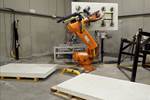

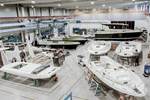
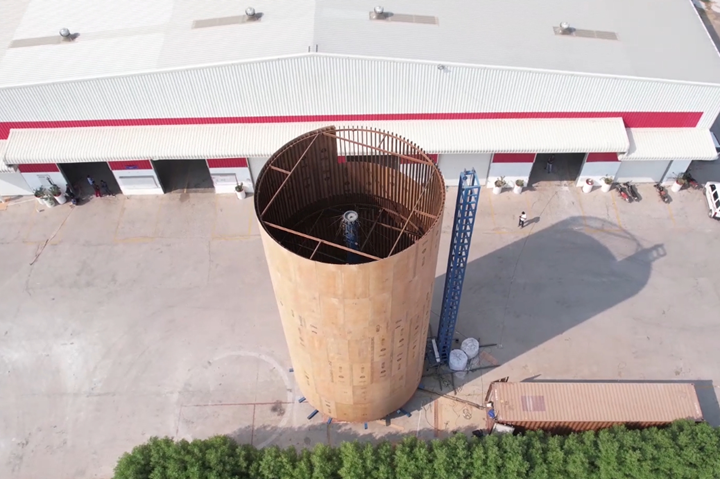



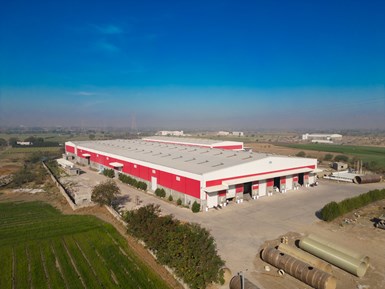
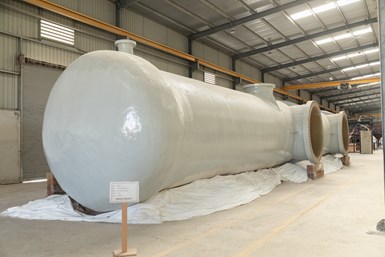
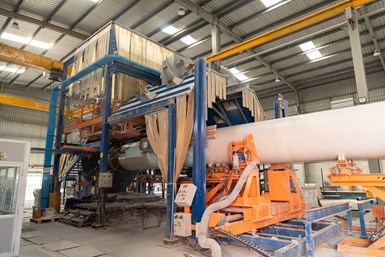

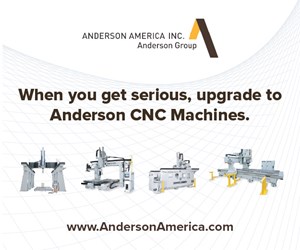



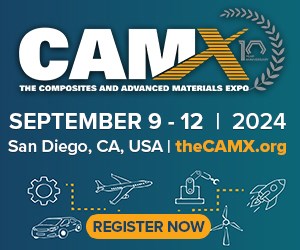



.jpg;maxWidth=300;quality=90)


